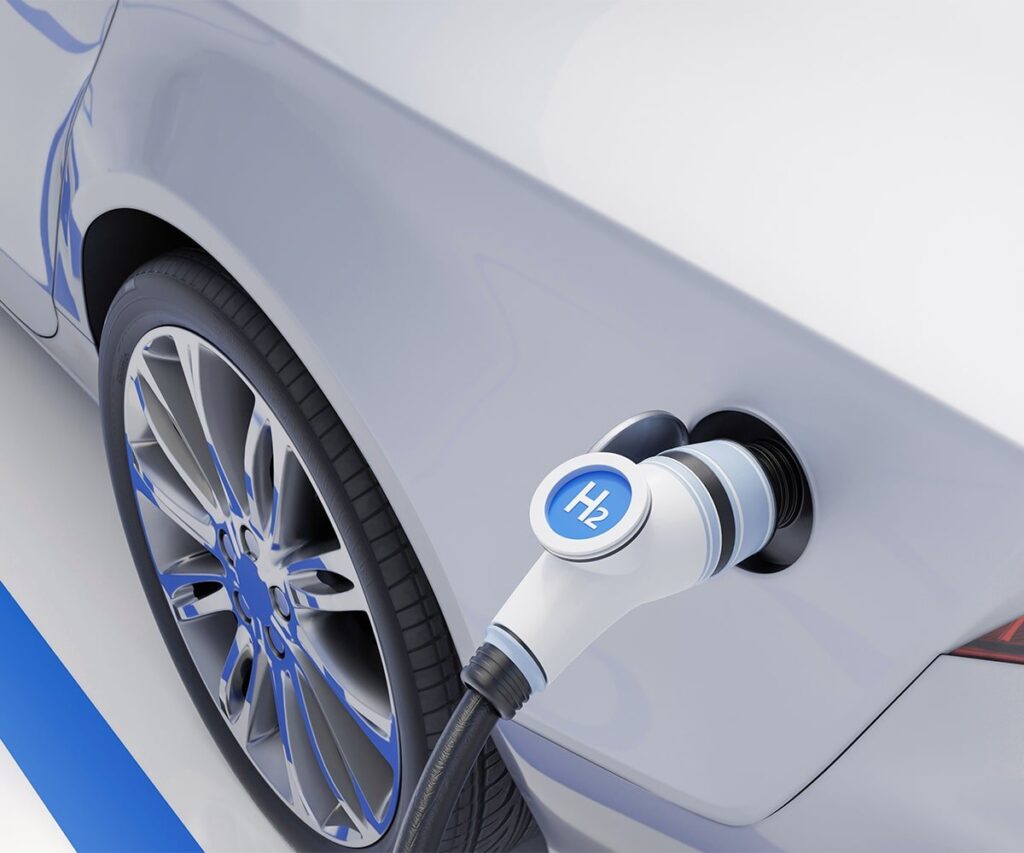
Project Details
Project Name :
Hydrogen power plant
Client :
Steve Smith
Category :
Vehicles
Location :
Envanto HQ, Los Angeles, USA
Year :
2023
Green Energy
A hydrogen power plant, also known as a hydrogen energy facility or hydrogen production facility, is a facility that generates electricity using hydrogen as a primary fuel source. These power plants utilize various technologies to convert the chemical energy stored in hydrogen into electrical energy. There are several types of hydrogen power plants, each with its own method of electricity generation:Fuel Cell Power Plant: Fuel cells are electrochemical devices that convert hydrogen and oxygen into electricity and water through a chemical reaction. Fuel cell power plants typically consist of multiple fuel cells connected in series to generate electricity on a larger scale. This technology is highly efficient and emits only water vapor as a byproduct, making it a clean energy solution.Combustion Turbine Power Plant: In a combustion turbine power plant, hydrogen is burned in a combustion chamber to produce high-temperature, high-pressure gas. This gas is then expanded through a turbine, driving a generator to produce electricity. While combustion turbines are less efficient and produce emissions, burning hydrogen emits only water vapor, resulting in minimal environmental impact.Hydrogen-Fueled Steam Turbine Power Plant: Similar to natural gas or coal-fired steam turbine power plants, hydrogen can be burned in a boiler to produce steam, which then drives a steam turbine connected to a generator to produce electricity. This method can achieve high efficiencies and is suitable for large-scale power generation.Hybrid Power Plants: Some power plants use a combination of technologies, such as integrating fuel cells with combustion turbines or steam turbines, to take advantage of the benefits of each technology and optimize efficiency.Hydrogen power plants offer several potential benefits:Clean Energy: Hydrogen is a clean-burning fuel, producing only water vapor as a byproduct when combusted or used in fuel cells. This makes hydrogen power plants an environmentally friendly energy option, especially when hydrogen is produced using renewable energy sources.Energy Storage: Hydrogen can serve as a form of energy storage, allowing excess electricity from renewable sources like solar and wind to be converted into hydrogen through electrolysis and stored for later use in power generation when needed.Grid Stability: Hydrogen power plants can provide grid stability and flexibility by adjusting their output to match fluctuations in electricity demand, helping to balance the supply and demand of electricity on the grid.Decentralized Power Generation: Hydrogen power plants can be deployed in various locations, including remote or off-grid areas, providing reliable electricity access where traditional grid infrastructure may be limited or unavailable.Despite these benefits, there are challenges to widespread deployment of hydrogen power plants, including the high cost of hydrogen production and infrastructure, as well as the need for advancements in hydrogen storage and distribution technologies. Nonetheless, ongoing research and development efforts are aimed at overcoming these challenges and unlocking the full potential of hydrogen as a clean and sustainable energy source for power generation.



THERMAL PROCESSES
At vero eos et accusamus et iusto odio dignissimos ducimus qui blanditiis praesentium voluptatum deleniti atque corrupti quos dolores et quas molestias excepturi sint occaecati cupiditate non provident.
Safety
Experienced project engineers with a focus on safety and speed of execution.
Reliability
Experienced project engineers with a focus on safety and speed of execution.
Experienced
Experienced project engineers with a focus on safety and speed of execution.
OUR BENEFITS
Hydrogen power plants offer several benefits, which contribute to their potential as a sustainable and versatile energy solution:Clean Energy Production: Hydrogen is a clean-burning fuel, producing only water vapor as a byproduct when combusted or used in fuel cells. As such, hydrogen power plants can significantly reduce air pollution and greenhouse gas emissions compared to traditional fossil fuel-based power plants, contributing to efforts to combat climate change and improve air quality.Energy Storage and Grid Stability: Hydrogen can serve as a form of energy storage, allowing excess electricity from renewable sources like solar and wind to be converted into hydrogen through electrolysis and stored for later use in power generation when needed. Hydrogen power plants can thus help stabilize the electricity grid by providing backup power during periods of high demand or when renewable energy generation is intermittent.Renewable Energy Integration: Hydrogen power plants can play a key role in integrating renewable energy sources into the grid by providing dispatchable power generation capacity that can complement variable renewable energy sources like solar and wind. This can help address the intermittency and variability challenges associated with renewables and facilitate their wider adoption.Decentralized Power Generation: Hydrogen power plants can be deployed in various locations, including remote or off-grid areas, providing reliable electricity access where traditional grid infrastructure may be limited or unavailable. This decentralized approach to power generation can enhance energy security and resilience, particularly in regions prone to natural disasters or geopolitical instability.Versatility and Scalability: Hydrogen power plants can be designed and scaled to meet a wide range of energy needs, from small-scale distributed generation systems to large-scale centralized power plants. This versatility allows hydrogen power plants to adapt to varying demand levels and energy requirements, making them suitable for a diverse range of applications and settings.Economic Opportunities: The development and deployment of hydrogen power plants can create new economic opportunities, including job creation in manufacturing, construction, operation, and maintenance sectors. Additionally, hydrogen production and distribution infrastructure can stimulate investment and innovation in related industries, driving economic growth and competitiveness.Energy Independence: Hydrogen power plants can reduce dependence on imported fossil fuels and enhance energy independence by utilizing domestically available resources, such as renewable energy sources for hydrogen production. This can improve energy security and resilience by diversifying energy sources and reducing exposure to geopolitical risks associated with fossil fuel imports.Overall, hydrogen power plants offer a range of benefits, including clean energy production, grid stability, renewable energy integration, decentralized power generation, versatility, scalability, economic opportunities, and energy independence. These benefits make hydrogen power plants a promising and sustainable energy solution for addressing the challenges of climate change, air pollution, energy security, and economic development.
